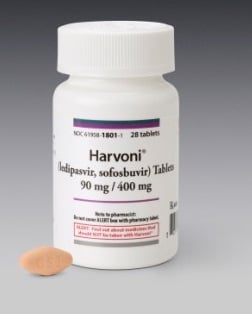 |
| Sanofi's Pierre Chancel |
Drugmakers are counting on growth in Japan's pharma market, and Sanofi and Gilead Sciences ($GILD) scored a fresh crop of approvals that could help. Sanofi ($SNY) got Japan's regulatory OK for diabetes newcomer Toujeo, while Gilead got a greenlight for hep C combo med Harvoni.
Japanese regulators approved Toujeo, to be marketed under the brand name Lantus XR, for Type 1 and Type 2 diabetes patients. Diabetes affects about 9.5 million people in Japan, a big new market for the drug, which launched in the U.S. in April. In clinical trials, patients who took Toujeo had fewer low blood sugar episodes at night, compared with shorter-acting Lantus--a selling point Sanofi is quick to talk up. The med also warded off low blood sugar throughout the day, Masato Odawara of Tokyo Medical University said in a statement.
The news marks a bright point for Sanofi, as it looks to Toujeo to fill Lantus' multibillion-dollar shoes. Lantus brought in about $7 billion in 2014, but biosimilar competition is expected in Europe this year, and perhaps as soon as 2016 in the U.S. Sanofi is touting Toujeo's trial successes and targeting patients who have not already taken Lantus in hopes of generating blockbuster sales.
"In just four months, Sanofi's next generation basal insulin has been granted marketing authorization by three major regulatory authorities," Pierre Chancel, head of the company's Global Diabetes unit, said in a statement. "This first approval in Asia adds to the momentum of an active launch year, and it highlights our commitment to improving diabetes care worldwide."

Gilead is also celebrating a win for Harvoni, as Japanese regulators signed off on the once-daily combo drug for patients with genotype 1 disease. The approval was based on a trial of 318 Japanese patients treated over 12 weeks with Harvoni or Harvoni plus the older drug ribavirin. In the ribavirin-free arm, 100% of patients achieved a sustained virologic response, the company said in a statement. This could mean big things for Harvoni in Japan, where more than 1 million people have chronic hep C and about 70% to 80% have the genotype 1 strain of the virus.
But Sanofi and Gilead could have their work cut out for them in Japan. While the country's pharma market is forecast to hit the $80 billion mark by 2020--up from $72.8 billion in 2013--a shift toward generics and an increasingly restrictive drug-pricing policy could bog that number down. Earlier this year, the Japanese government said it was considering changing its policy toward drug pricing, potentially setting price caps that would last for three fiscal years instead of two. The move was meant to reduce spending, but could deal a blow to companies like Sanofi and Gilead that are trying to expand the reach for their meds abroad.
- read Sanofi's statement
- here's Gilead's statement
Special Reports: New drug approvals of 2014 - Harvoni | The top 10 best-selling diabetes drugs of 2013 - Lantus